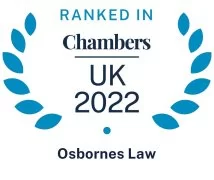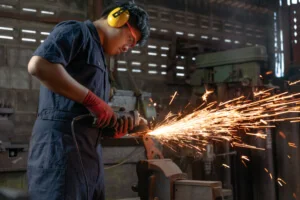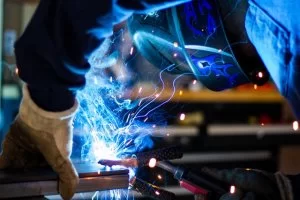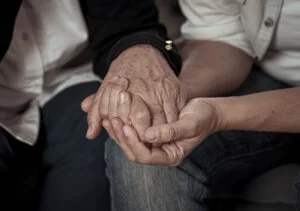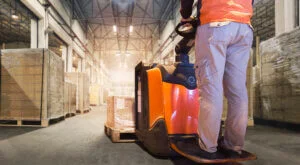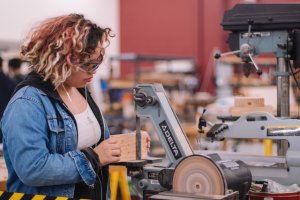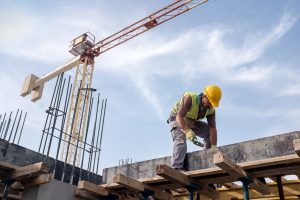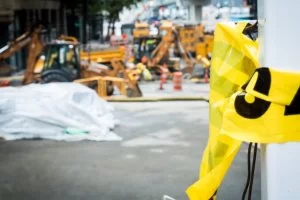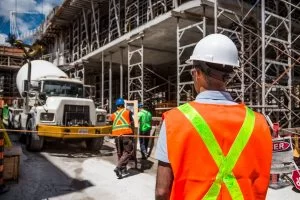Train & Railway Accident Claims
Make a Train Accident Claim for Compensation
Our lawyers will guide you through the process of making a Train Accident Claim
“They punch well above their weight. The quality of service they provide equals that of any of the larger top-name firms in this area.”
“Fielding a first class, very well resourced team of litigators, the personal injury department at Osbornes is rated for its diverse workload of complex, high-value injury claims.”
Introduction to Train Accident Claims
Many track workers are now employed by contractors in the railway industry. This sector is often non-unionised and worker rights can be an issue. Many track jobs can be mechanised but much of it still requires skilled and unskilled labour.
Injuries caused by engineering and track work
The work of repairing and maintaining track is usually carried out alongside a live line and so can be very dangerous. It is the job of those organisations who own and run the infrastructure (e.g. London Underground and Network Rail) to plan works to minimise the risk of accidents and injuries at work claims ‘Green Zone Working’ refers to the practice of closing off a working area so that workers and trains are physically segregated. On the Underground, it is done by carrying out engineering work at night when the lines are closed. But this form of working is not always possible and ‘Red Zone Working’ is necessary. Here, the trains still run but there is a system to warn workers in advance of the train and a designated safe place for them to go until the train has passed. Office of Rail Regulation initiatives have produced improvements in track work safety records in the last few years but this work is still associated with fatal accident claims, such as the one involving welder Charlie Stockwell who was hit by a train during red zone work in Reading in 2007.
Duty of care arising from rail employers and rail contractors
Direct employers have additional duties which include training and providing safety equipment and other work equipment in good condition. If an employee is injured during track work there may be a claim against his direct employer and against the main contractor or the infrastructure operator, depending on the breach complained of.
Example of a train accident claim
Railway worker receives £7000
Osbornes acted for a worker who was employed by a company who were engaged in shotcreting a railway bridge; that work involved lifting some track and Mr C carried out the job with a crowbar because the correct piece of machinery was not available. One of the iron brackets holding a track sleeper was stiff and when he used more force a piece of metal flew into his eye. He suffered a nasty scratch to the cornea which caused temporary damage to his eyesight and prevented him from working for several weeks, by which time there was no contract work available to him for a further few weeks. The claim was directed to his employers because they failed to provide the correct work equipment and to compound that error they failed to provide eye protectors. They admitted the claim and settled the case for about £7000.
Post-traumatic claims by train drivers
Train drivers and especially London Underground tube drivers face a particular and gruesome occupational hazard which is sadly more common than it should be, of suicides on the track. It is understandable if even the most stoical driver suffers a post-traumatic stress reaction after witnessing such an event first-hand, especially if it happens more than once.
Of course, the driver’s employer is not liable for the traumatic event, but employers owe a general duty to take reasonable steps to protect their employees from foreseeable harm during the course of their work, and so those who employ train drivers; like emergency service, need to have systems in place to refer a driver for counselling or similar care after such an event.
Why choose Osbornes Law for your claim?
- We are experts in serious injury cases. Complex, high-value cases do not phase us, and we always fight for the maximum compensation possible.
- We are members of the Association of Personal Injury Lawyers so you can be sure you are dealing with a reputable and experienced firm.
- We take most personal injury claims on a no-win, no-fee basis so you will not have to pay any legal costs unless your claim is successful.
- We have won numerous awards for our expertise and client service; you will always receive the highest level of support and professionalism from us.
- We provide a free, no-obligation consultation so you can speak to us about your leg injury claim in confidence. Don’t worry – there’s no obligation to use our services after this consultation. We’re happy to share our knowledge so you can make the best decision for your situation.
"Katie has a good rapport with clients and genuinely wants to help them. She's extremely committed to helping clients."
Excellent communication at all stages of a claim and an emphasis on the needs of the client.
Osbornes is a highly proficient serious injury firm. They bring all the benefits of the biggest firms in the market but none of the downsides.
Kesha is a real star, she's junior but really deserves commendation for the commitment she shows to cases.
“Thank you all very much for your professional service, it has been reassuring throughout.”
Client Stories & InsightsVIEW ALL
- 9.7.2025
Warehouse Worker Fights Aldi’s False Dishonesty Claims
Aldi’s worker suffers ‘mental torture’ after the supermarket giant falsely accuses him of lying In a shocking case that...
Read more - 5.6.2025
Migrant Workers Face Greater Risk of Workplace Accidents
Why migrant workers face greater risk of workplace accidents? Foreign workers in the UK are statistically more likely to experience...
Read more - 22.10.2024
£75,000 Settlement for Head Injury at College
Accident During a College Class Eloise Mears, Solicitor at Osbornes Law, represented a student who sustained a head injury while...
Read more - 26.4.2024
Head Injury Following Slip at Work
Client who slipped at work obtains a good settlement Laura Swaine recently settled a work accident claim for a client...
Read more - 26.4.2024
Six-Figure Settlement for Head Injury at Work
Settlement for a client injured at work Laura Swaine recently settled a claim for a client who was injured while...
Read more - 14.3.2024
Strawberry Picker Receives £10,500 After Accident at Work
Incident in the Strawberry Field Our client was at work, walking in the field and carrying cages with strawberries, when...
Read more - 13.3.2024
Accident at Work Compensation Examples
Factory Worker Receives £14,000 for Hot Water Burns Our client was working in a food producing factory. He was injured when...
Read more - 13.2.2024
5-figure Payout for Death of Hungarian Lorry Driver
Hungarian lorry driver tragically dies Siobhan McIvor, a Partner and Personal Injury lawyer, has successfully settled a fatal accident compensation...
Read more - 6.12.2023
Accident at work claim settled for Romanian driver
Siobhan McIvor, a Partner in the Personal Injury Department, has successfully settled an accident at work claim arising from an...
Read more - 5.12.2023
£75,000 Compensation After Accident Leads to Blood Clot
£75k Settlement Following Injury at Work Serious injury lawyer, Blanca Diego Casas recently represented an individual who suffered serious medical...
Read more - 23.11.2023
Accident at work claim settled for Hungarian factory...
Forklift trucks are a common cause of warehouse injury claims due to human error on the part of the forklift...
Read more - 11.4.2023
£250,000 settlement for client injured in forklift accident
Sophie Davies, a specialist personal injury lawyer at Osbornes Law, recently represented a client who suffered life-changing injuries following a...
Read more - 17.11.2021
£100,000 settlement for tripping at work
Osbornes Law secures £100,000 settlement for Hungarian woman who tripped over a shopping bag at work Siobhan McIvor, a Partner in...
Read more - 17.11.2021
£165,000 settlement for factory accident
Siobhan McIvor, a Partner in the Personal Injury Department of Osbornes Law, has settled a £165,000 accident at work claim, with...
Read more - 31.8.2021
Kitchen Accident Claim
Our client, a hospitality supervisor instructed Osbornes after he slipped and fell on oil and food debris on the floor...
Read more - 18.5.2021
Construction Site Accident at Work
Our client suffered numerous fractures to their left leg requiring surgery following a work accident on a construction site. He...
Read more - 18.5.2021
Compensation for Amputation on Construction Site
Our client worked as a carpenter/bricklayer on a building site at a residential property in North London. He was...
Read more - 15.10.2020
Fatal Accidents In The Workplace
A new article from the BBC takes a looked at fatal accidents at work. The report states that since 1981, there...
Read more - 2.9.2020
Lasting damage to ankle following construction accident settles...
Sam Collard, a Partner in the Osbornes’ catastrophic injury team, recently settled a construction accident claim for a Romanian man...
Read more - 30.7.2020
Self Employed Accident at Work Claims
Understanding self employed workers’ rights As a self-employed worker, understanding your rights after a workplace accident is crucial. While your...
Read more - 13.8.2019
Fatal Accident Conviction Highlights Health & Safety
Construction bosses guilty of gross negligence manslaughter Conrad Sidebottom, 46, and Richard Golding, 43, were jailed for their part in causing the...
Read more
Our Personal Injury Team View the whole team
Rob Aylott
 Partner
Partner
Personal Injury SolicitorsSam Collard
 Partner
Partner
Personal Injury SolicitorsSophie Davies
 Partner
Partner
Personal Injury SolicitorsLaura Swaine
 Partner
Partner
Personal Injury SolicitorsNicola Hall
 Senior Associate
Senior Associate
Personal Injury SolicitorsAndrew Middlehurst
 Senior Associate
Senior Associate
Personal Injury SolicitorsView the
whole team

